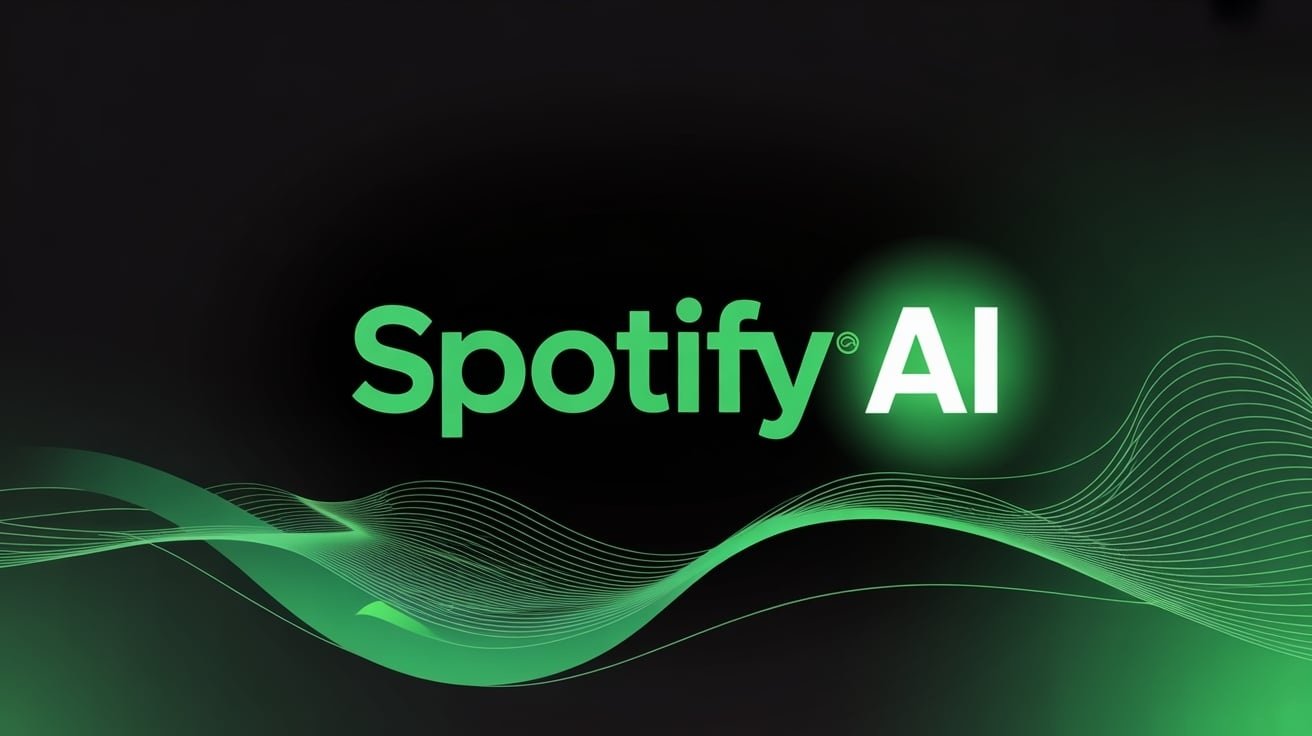Music has always been more than just sound—it’s an emotional experience, a connection, and often, a reflection of our lives. With the rise of Spotify AI, music streaming has taken an innovative leap, blending artificial intelligence with personalized listening. This AI-powered technology isn’t just about recommending tracks; it’s about understanding your mood, predicting your preferences, and even creating smart playlists that evolve with you. In today’s digital era, Spotify AI is reshaping the way we discover, enjoy, and share music.
What is Spotify AI?
Spotify AI is the advanced artificial intelligence system integrated into the Spotify platform to enhance user experience. It combines data science, machine learning, and natural language processing to analyze listening habits and deliver personalized recommendations.
Unlike traditional music algorithms, Spotify AI goes deeper by considering context, mood, cultural trends, and user interactions, ensuring every recommendation feels more human and intuitive.
How Spotify AI Works Behind the Scenes
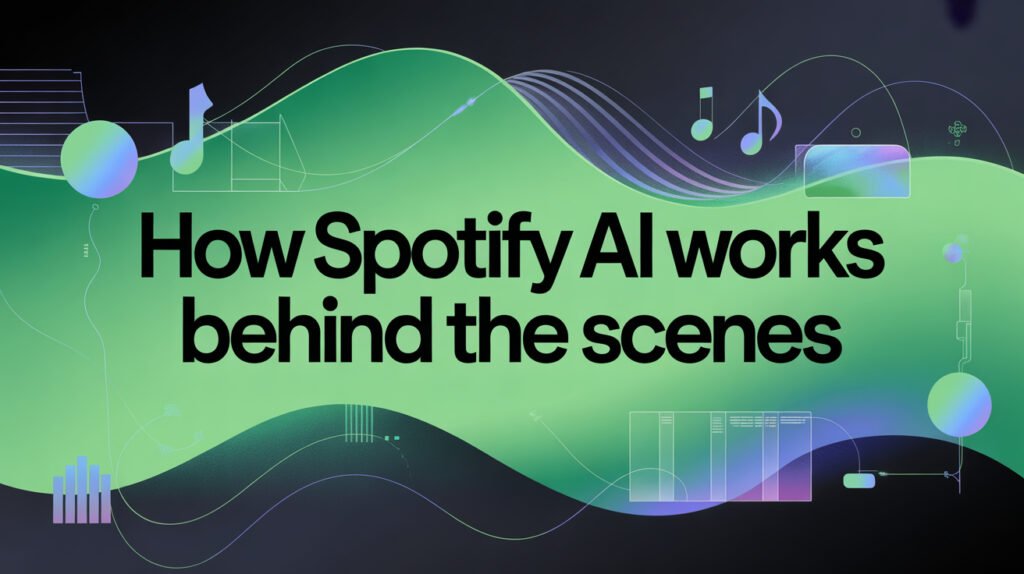
Spotify AI uses a multi-layered approach to curate and deliver music suggestions. Here’s how it functions:
- Data Collection – Tracks your listening history, skip rate, playlists, and favorite artists.
- Collaborative Filtering – Compares your music taste with millions of users worldwide.
- Natural Language Processing (NLP) – Scans blogs, reviews, and descriptions to understand trends.
- Neural Networks – Predicts what song you’re likely to enjoy next.
- Real-Time Context Awareness – Adjusts suggestions based on time of day, activity, or device used.
AI FeatureFunctionUser BenefitCollaborative FilteringMatches taste with similar listenersMore accurate suggestionsNLP IntegrationAnalyzes music-related content onlineTrend-aware playlistsNeural NetworksPredicts your next favorite songPersonalized discoveryContext AwarenessConsiders time, place, and deviceSmart recommendations for every mood
Spotify AI and Personalized Playlists
The most visible feature of Spotify AI is personalized playlists like Discover Weekly, Release Radar, and Daily Mix. These playlists are crafted using AI insights, ensuring no two users have the same mix.
For example, Discover Weekly analyzes billions of playlists, then compares them with your unique listening patterns to suggest songs you’ve never heard but are likely to enjoy. This feature has become a cornerstone of Spotify’s growth, driving user engagement and loyalty.
Spotify AI and the Future of Music Discovery
Traditionally, discovering new music relied on radio or word-of-mouth. Now, Spotify AI accelerates this process by uncovering hidden gems from around the world. Independent artists benefit as well, since AI levels the playing field by recommending their tracks alongside mainstream hits.
This democratization of music discovery helps smaller voices reach global audiences. In fact, many viral hits today owe their success to being included in an AI-powered playlist.
Spotify AI Voice DJ – A Game Changer
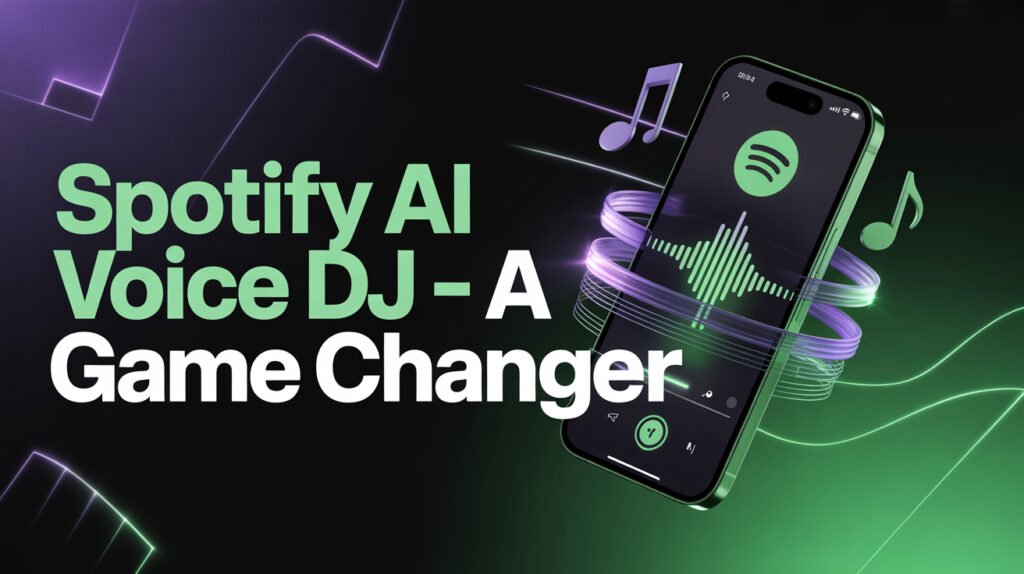
One of the most exciting innovations is Spotify AI DJ. This feature acts like a virtual radio host powered by artificial intelligence. It not only plays personalized tracks but also uses a realistic AI-generated voice to introduce songs, share facts about artists, and even comment on your listening habits.
This makes the experience more interactive, blending technology with a sense of human connection.
The Role of Machine Learning in Spotify AI
Machine learning forms the backbone of Spotify AI. Every time you play, pause, or skip a track, the system learns. Over time, these micro-actions shape a highly tailored listening experience.
Some machine learning applications include:
- Predicting your mood playlist (workout, study, relaxation).
- Identifying similar genres or artists you might like.
- Adjusting recommendations based on your location or device.
Spotify AI vs Competitors
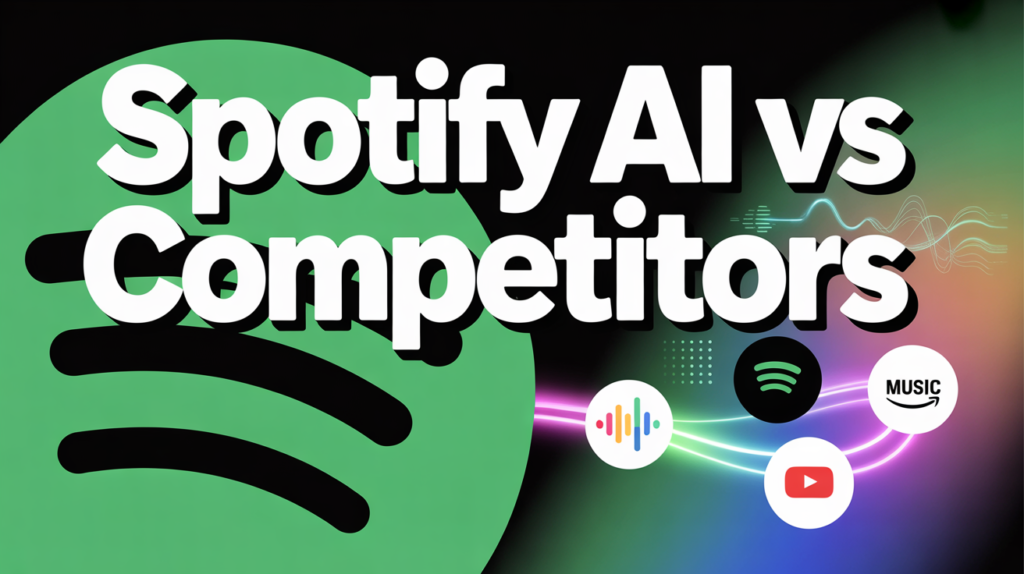
How does Spotify AI compare to others like Apple Music or YouTube Music?
FeatureSpotify AIApple MusicYouTube MusicPersonalized PlaylistsHighly advanced (Discover Weekly, DJ)Basic suggestionsDecent recommendationsAI Voice IntegrationYes (AI DJ)NoNoMood DetectionAdvanced (context-aware)LimitedModerateIndependent Artist SupportStrongModerateHigh but less personalized
Spotify’s edge lies in its deep personalization and constant innovation, which keeps users engaged longer than its competitors.
Privacy Concerns with Spotify AI
With all this personalization, some users worry about privacy. Spotify collects a large amount of data, including listening history, device type, and even location. While this data is used to improve AI recommendations, users should be aware of privacy policies and settings.
Spotify offers options to control data sharing, giving users some level of transparency and choice.
How Spotify AI Helps Artists
Spotify AI isn’t only for listeners—it’s also a powerful tool for artists. Through features like Spotify for Artists, musicians gain insights into who’s listening, where their audience is located, and which songs perform best.
This data helps artists tailor their releases, plan tours, and connect more meaningfully with fans.
The Future of Spotify AI
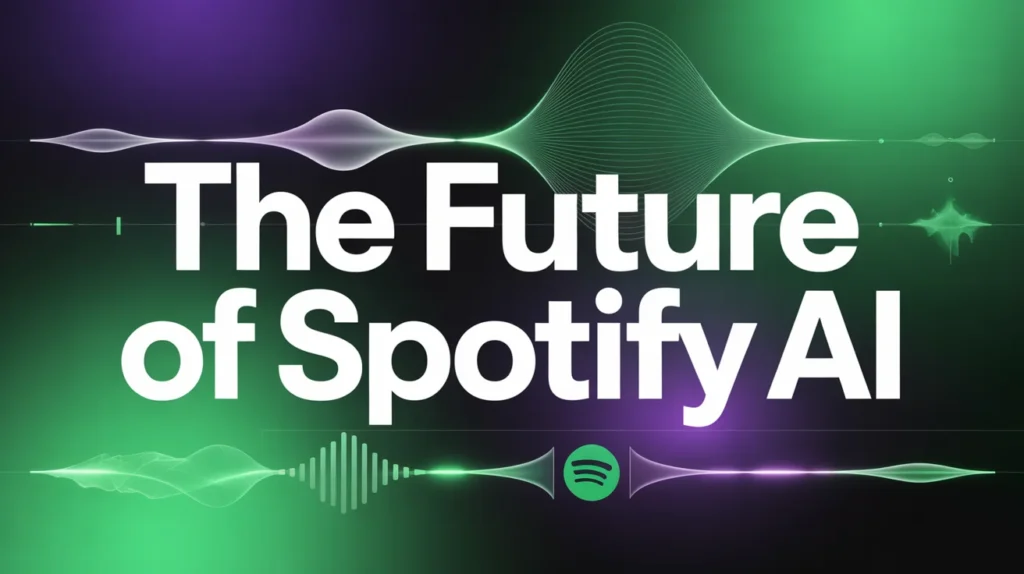
The future of Spotify AI looks promising, with ongoing developments in:
- Emotion Recognition – Detecting mood through wearable devices.
- Deeper Voice AI – More natural, conversational DJs.
- Integration with AR/VR – Creating immersive music experiences.
- Hyper-Personalized Concert Recommendations – Suggesting live shows based on user interests.
AI will continue to make Spotify less of a music player and more of a music companion.
Pros and Cons of Spotify AI
ProsConsPersonalized playlists tailored to each listenerRaises privacy concernsHelps independent artists gain exposureCan sometimes misinterpret preferencesEnhances user engagement with AI DJDependence on data collectionConstantly evolving with new AI toolsRisk of reducing human discovery element
FAQs
1. What makes Spotify AI different from regular recommendations? Spotify AI goes beyond simple algorithms by using machine learning, natural language processing, and real-time context to create deeper personalization.
2. Can Spotify AI really understand my mood? Yes, Spotify AI uses data such as time of day, activity, and listening history to predict and match playlists to your mood.
3. Is Spotify AI safe for user privacy? While Spotify AI collects data, the company provides privacy settings to manage what information is shared. Users should review these for peace of mind.
4. Does Spotify AI help new artists? Absolutely. By analyzing trends and listening habits, AI-powered playlists often feature independent musicians, giving them exposure to global audiences.
5. Will Spotify AI replace human DJs? Not entirely. While AI DJ adds a personal touch, it’s meant to complement—not replace—the unique creativity and storytelling of real DJs.
Conclusion
Spotify AI represents a powerful shift in how we experience music. By merging artificial intelligence with human emotion, it delivers playlists, recommendations, and even AI DJs that feel uniquely personal. From helping users discover hidden gems to supporting emerging artists, Spotify AI is shaping the future of music streaming.
As technology advances, the bond between AI and music will only deepen, making every playlist a reflection of who we are—and who we might become.


